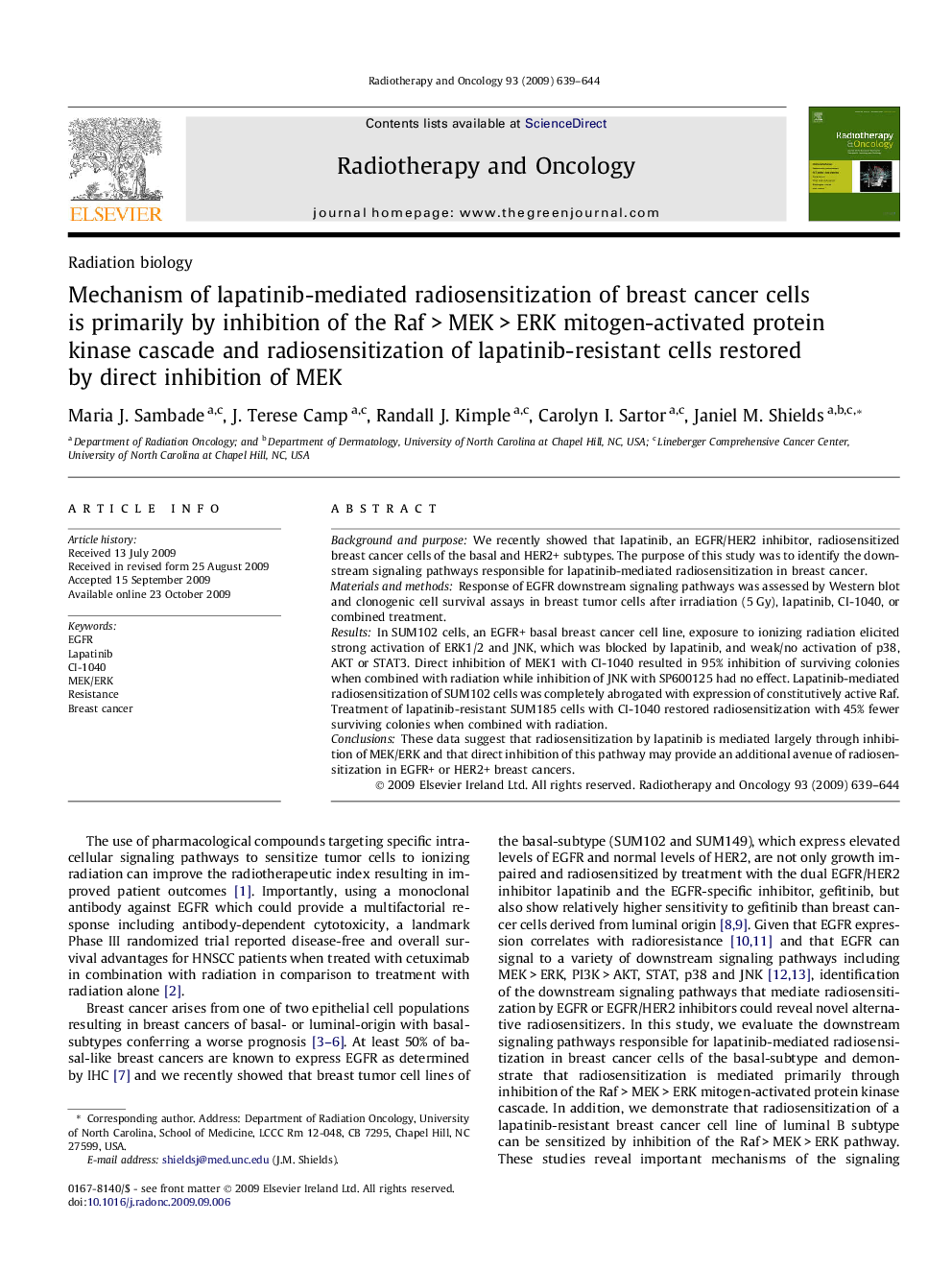| Article ID | Journal | Published Year | Pages | File Type |
|---|---|---|---|---|
| 2159762 | Radiotherapy and Oncology | 2009 | 6 Pages |
Background and purposeWe recently showed that lapatinib, an EGFR/HER2 inhibitor, radiosensitized breast cancer cells of the basal and HER2+ subtypes. The purpose of this study was to identify the downstream signaling pathways responsible for lapatinib-mediated radiosensitization in breast cancer.Materials and methodsResponse of EGFR downstream signaling pathways was assessed by Western blot and clonogenic cell survival assays in breast tumor cells after irradiation (5 Gy), lapatinib, CI-1040, or combined treatment.ResultsIn SUM102 cells, an EGFR+ basal breast cancer cell line, exposure to ionizing radiation elicited strong activation of ERK1/2 and JNK, which was blocked by lapatinib, and weak/no activation of p38, AKT or STAT3. Direct inhibition of MEK1 with CI-1040 resulted in 95% inhibition of surviving colonies when combined with radiation while inhibition of JNK with SP600125 had no effect. Lapatinib-mediated radiosensitization of SUM102 cells was completely abrogated with expression of constitutively active Raf. Treatment of lapatinib-resistant SUM185 cells with CI-1040 restored radiosensitization with 45% fewer surviving colonies when combined with radiation.ConclusionsThese data suggest that radiosensitization by lapatinib is mediated largely through inhibition of MEK/ERK and that direct inhibition of this pathway may provide an additional avenue of radiosensitization in EGFR+ or HER2+ breast cancers.
